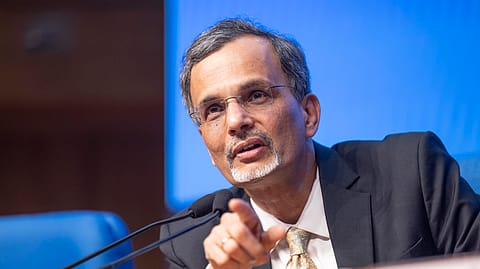Deregulation key to unlocking India’s Growth: Economic Survey 2024-25
Amid structural bottlenecks and global uncertainties, India’s commitment to economic liberalisation and strategic policymaking will shape its growth trajectory in the coming decade, says the Survey

The Economic Survey 2024-25 tabled by Union Minister of Finance and Corporate Affairs Nirmala Sitharaman in the Parliament today underscores the need for deregulation or regulatory tweaks to boost the Indian economy. It states that while structural bottlenecks, regulatory challenges, and global uncertainties persist, India’s commitment to economic liberalisation and strategic policymaking will determine its trajectory in the coming decade. The ability to streamline regulations, enhance industrial competitiveness, and foster innovation will be key to India’s success in an increasingly fragmented global economy, it summarises.
The Survey considers deregulation at the core of economic expansion and argues that reducing business costs and eliminating bureaucratic inefficiencies will stimulate private investment and job creation. “Every chapter of the Economic Survey makes a case for simplification and deregulation wherever possible and necessary, it also acknowledges areas where more and/or appropriate regulatory intervention may be necessary,” Chief Economic Advisor V. Anantha Nageswaran, the author of the Survey notes in his preface.
The Survey observes that despite progress, India continues to grapple with excessive regulatory burdens that deter entrepreneurship and industrial growth. The Jan Vishwas Act 2023, which decriminalised 183 business-related provisions, was a step forward, but the Survey urges further reforms to enhance business competitiveness. “As the economy grows, hitherto unseen and non-binding constraints emerge and become binding. Hence, there is a constant need to evolve,” the Survey notes.
Commenting on the emphasis the Economic Survey gives to deregulation as a game-changer for India’s economic growth, Ajay Srivastava, founder of Global Trade Research Initiative (GTRI) says that industrial sectors like steel, textiles, and chemicals remain trapped in a maze of excessive regulations. “Take steel, for instance: despite imports accounting for just 6% of India’s consumption, the delays in issuance of NOCs, complex process of registrations at SIMs portal, and delayed registration of foreign suppliers by BIS make it nearly impossible to import seamlessly. In one case, a company was forced to pay half the consignment value as demurrage at the port simply due to delays in the issuance of NOCs. This kind of red tape doesn’t just hurt businesses—it destroys entrepreneurship and scares away potential investors,” Srivastava says.
He wanted the government must act swiftly on the deregulation front. “India’s complex web of export and import processes, GST compliance rules, QCOs, customs notifications and sectoral regulations must be reviewed by an independent agency. Cutting these inefficiencies alone could boost India’s GDP growth by at least 2%. The Economic Survey provides the Blueprint for Growth and a bold hint, time now for Government for bold execution,” he says.